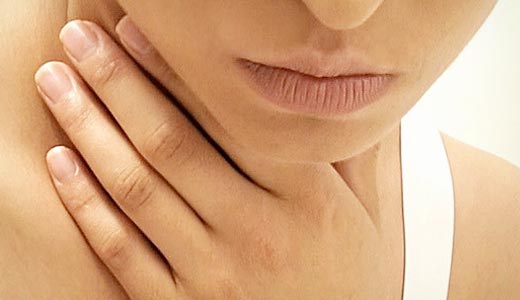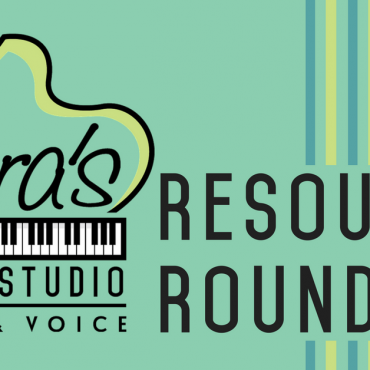Vocalists and Acid Reflux
Have you ever heard of laryngopharyngeal reflux? It’s the fancy term for “acid reflux,” and it’s something that many people deal with on a regular basis. Here is what happens when you have LPR:
…. the larynx (voice box) serves as the switching station, actively separating the airway from the esophagus. (…) the larynx stays open for breathing but closes tightly and even moves out of the way for swallowing, as the esophagus opens.
When this coordination breaks down (…) things can get scrambled. You might swallow a bit of air, or feel something “go down the wrong way.” In the latter case, the larynx aggressively protects the lungs, triggering your cough reflex to get the airway clear again.
These mechanics of everyday life show how close the larynx is to the top muscular valve of the esophagus. In fact, only a few layers of tissue separate them. This means that even small amounts of stomach acid that sneak back up the esophagus are apt to spill into the larynx, irritating the back area of the vocal cords. Source: Your Throat on Acid from The Voice of Your Life
This type of irritation, even when it’s mild, can affect a singer’s voice. There are many different symptoms, most of which are subtle and might be attributed to other causes, such as environmental irritants. The term “acid reflux” is often incorrectly associated with “heartburn,” which is a symptom that most LPR suffers never experience. Here is a brief list of some of the symptoms someone might have with LPR:
Common Symptoms of LPRD:
Hoarseness or Asthma-like symptoms
Chronic (ongoing) cough or Referred ear pain
Frequent throat clearing or Post-nasal drip
Pain or sensation in throat; Singing: Difficulty with high notes
Feeling of lump in throat
Problems while swallowing
Bad / bitter taste in mouth (Especially in morning)
Source: Texas Voice Center
The frequent diagnosis of LPR, especially among singers, is often debated among vocal therapists, doctors, and teachers. Some believe that LPR has become the “catch all” for symptoms that have no other known cause. Many doctors prescribe medications, such as H2 blockers (Pepcid, Zantac, etc.) and proton pump inhibitors (Prilosec, Prevacid, etc.) that treat the symptoms, but do not treat the underlying sources. Often times, the dosages of these medications must be continually increased in order to be effective.
My opinion on LPR diagnosis: My family has a history of GERD (gastro-esophageal reflux disease), which is a condition related to LPR. Instead of the acid reaching the larynx, it stays in the esophagus, and can produce a lot of undesirable symptoms. The most effective treatment solutions they’ve found are life and diet changes.
If you suspect that you or a student of yours suffers from LPR, take a look through these resources and consider whether or not a doctor should be consulted. Remember – not all doctors will treat the causes of the symptoms, so they may want to consult a nutritionist as well. Most of the natural “remedies” for this issue are positive life changes that anyone can benefit from following.
Here is a helpful list of resources about LPR and both conventional and natural remedies:
What is LPR:
- Texas Voice Center: Laryngopharyngeal Reflux Disease and Recommendations to Prevent Acid Reflux
- Cleveland Clinic: Laryngopharyngeal Reflux (LPR)
- New York Eye and Ear Infirmary of Mount Sinai: Disorders of the Larynx that May Cause a Voice Problem
Taking Care of Yourself Naturally:
- Dr. Oz: 3-Step Silent Reflux Prevention Plan
- Woo Woo Mommy: How I Cured Myself from GERD: Acid Reflux “Disease”
Further Research:
- The Voice of Your Life: Your Throat on Acid
- Voicedoctor.net: Esophageal reflux and the larynx
- Amazon: Why is There a Frog in my Throat? A Guide to Hoarseness
I hope this list will prove helpful to those who might have some of these unexplained symptoms. I’ve come across several students during my career that unknowingly suffered from LPR. Each case was mild, but the symptoms were a call for students to take better care of themselves. (Especially during busy musical seasons!) Thanks for reading!







